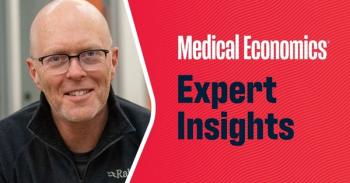
Study: Less than half of medical students understand ACA
Medical students who lean toward primary care are more likely to support the Affordable Care Act, according to new research.
Medical students leaning toward primary care, or those in their first year of school or who self-identify as liberal, are more likely to support and feel an obligation to implement the Affordable Care Act (ACA), according to a new survey of nearly 850 medical students in Minnesota.
The study, published as an online-first research letter in the
Those who grasp the concept of healthcare reform are most likely to support it, researchers note, with 72% of those who understand the ACA indicating support compared with 20% who don’t understand the ACA and indicate support.
Additionally, students who say their choice of specialty was influenced by medical school debt or future earnings are less likely to support or feel a sense of obligation to implement the ACA. Third-year students are less likely to support or feel an obligation toward implementing the ACA in comparison with first-year students.
“While future physicians believe they have a responsibility to participate in implementing the ACA, these data raise concerns that they might not possess the knowledge necessary to implement reform measures in the coming years,” the study authors note.
The study was supported by a grant from the National Center for Research Resources and the National Institutes of Health.
In a
“A change in health insurance policy that will affect millions of Americans’ access to care for a variety of medical problems is not included in most medical curricula even 2 years after the bill is passed,” Cullen writes.
She notes that a 2010 survey of medical school deans revealed that they offered “too little” health policy education, with only 25% requiring students to take a class on health policy.
Cullen says that although the study suggests that future physicians feel strongly about expanding access to healthcare coverage to the uninsured, the fact that so many medical students believe they don’t know much about the ACA is a “disturbing truth.”
One positive trend Cullen identifies, however, is that more students are entering primary care since the passage of the ACA (an increase of nearly 2% from 2009 to 2011)-a reversal of a 10-year trend of decline.
“This change suggests that not only does the choice to enter primary care influence the likelihood of support for the bill, but also, and most important, that the bill and its provisions may have encourage more medical students to decide on primary care training,” Cullen writes.
Newsletter
Stay informed and empowered with Medical Economics enewsletter, delivering expert insights, financial strategies, practice management tips and technology trends — tailored for today’s physicians.






